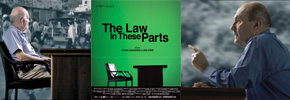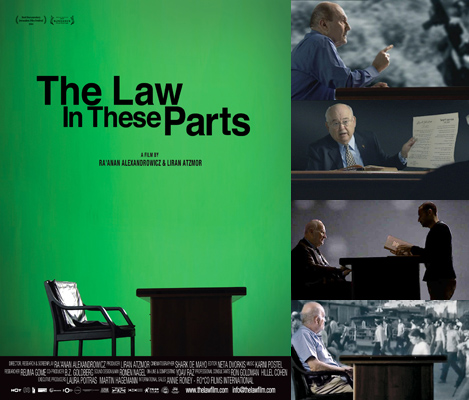Sima Sahar Zerehi – Sometimes watching a documentary is akin to sitting through a lecture by the morality police. You sign up for two hours of being talked down to, only to leave the theatre feeling guilty and despondent about the state of the world and the human capacity for evil.
Do-gooders and bleeding hearts have taken over the genre – offering generous helpings of bland film footage devoid of creativity, humor or beauty on such uplifting topics as global warming, sweatshop labour, and urban poverty.
In the past, I viewed watching a documentary as my moral duty, I would attend these screenings often organized as fundraising events, much the same way that a Catholic attends Sunday mass, as my personal cross to bear.
After making my monetary contribution to the cause célèbre, I would take my seat in a room filled with fellow lefties and fight to keep myself from yawning or nodding off.
The burnout from these uninspiring film viewings had made me keep my distance from documentaries recently. I simply couldn’t sit through another poorly made film about tortured political prisoners or a poverty stricken single mother turning to prostitution to feed her kids.
I felt that I was already converted, so what was the use of suffering through another preaching?
It was with this mindset that I entered the Bell Lightbox Theatre to see Ra’anan Alexandrowicz’s The Law in These Parts, an Israeli film about the development of laws by the Israeli military and judicial system to govern the Occupied Territories in the Gaza Strip.
A quick look around the theatre confirmed some of my worst fears. I thought to myself, this might be a far cry from a church basement or community centre but the audience is the same familiar activist crew, clutching leaflets and adorned with pins.
To make matters worse, a short introduction by the director, a gruff man of very few words who seemed genuinely annoyed to be there, preceded the screening. I considered making a run for it but I was sitting in the middle of the back row flanked by a dozen people on each side, there was no way I could make a clean exit. So, I took a deep breath, tightened my jaw and prepared for the worst.
Within a few minutes into the film, I realized that I was witnessing something special. Alexandrowicz despite his surly persona is clearly an innovator who knows how to tell a story that captivates an audience.
To truly understand the scope of Alexandrowicz’s talent, it’s important to divulge what the film entailed. The documentary is simply composed of a series of testimonial interviews with the Israeli judges, generals, and legal minds that created the laws that govern the Occupied Territories.
The subjects are all old men, and all the interviews take place in the same studio setting, with the subjects sitting on an elevated platform on the same chair before the same desk, facing Alexandrowicz who asks the questions.
The only other images included in the film is black and white archival footage from documentaries about the region, which are sometimes projected on a white screen that flanks the subjects as well as occasional snapshots of excerpts from legal documents.
Had I simply read this description before walking into the screening, I would have likely opted out of the film. But what is remarkable about The Law in These Parts, is how Alexandrowicz, has been able to use these simple elements to create a film that draws the audience in.
At some crucial points in the film, as more poignant questions are posed, you could feel the audience collectively holding its breath, awaiting the inevitable.
What Alexandrowicz does masterfully is allow the camera to linger long enough for the subject to fill the pregnant pauses, and when the silence is broken, the confessions that are revealed create an unforgettable narrative about how the scales of justice can be manipulated to carry out unspeakable atrocities.
This film is not only well crafted but also masterfully researched. Within a two-hour framework Alexandrowicz allows audiences to be exposed to decades of legal proceedings, documents and transcripts that paint a picture of a skewed legal system designed to control the Palestinian population and their land.
This film is guaranteed to make the most jaded documentary viewer fall back in love with the genre. The Law in These Parts was awarded the Special jury prize, international feature a $5,000 cash prize. _____________________________________________________________
Other Hot Docs Award Winners:
CHASING ICE, (Jeff Orlowski, USA): People’s Choice Award
The Boxing Girls of Kabul (Ariel J. Nasr): Inspirit Foundation Pluralism Prize ($۱۰,۰۰۰)
My Thai Bride (David Tucker, Australia): Best mid-length doc ($۳,۰۰۰)
- Nessa (Loghman Khaledi, Iran): Honourable mention
Five Fragments of the Extinct Empathy (Anna Nykyri, Finland): Best short doc
- Family Nightmare (Dustin Guy Defa, U.S.): Honourable mention
Don Haig Award (for a unique voice): Mia Donovan, the Montreal director who created Inside Lara Roxx
HBO Emerging Artist Award: shared by two films; Tchoupitoulas by Bill and Turner Ross of the U.S., Meanwhile in Mamelodi by Boris Frank of Germany and South Africa.





